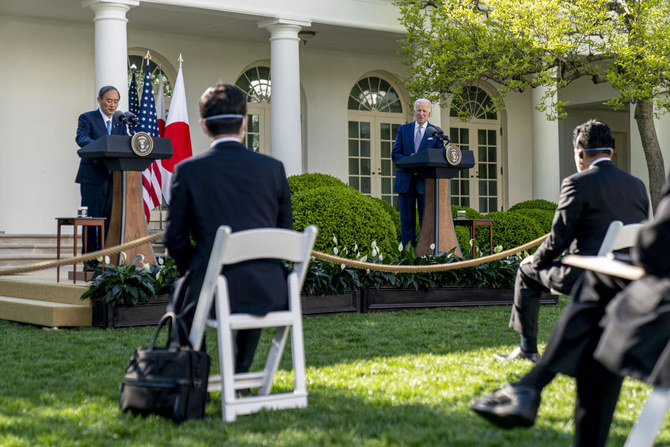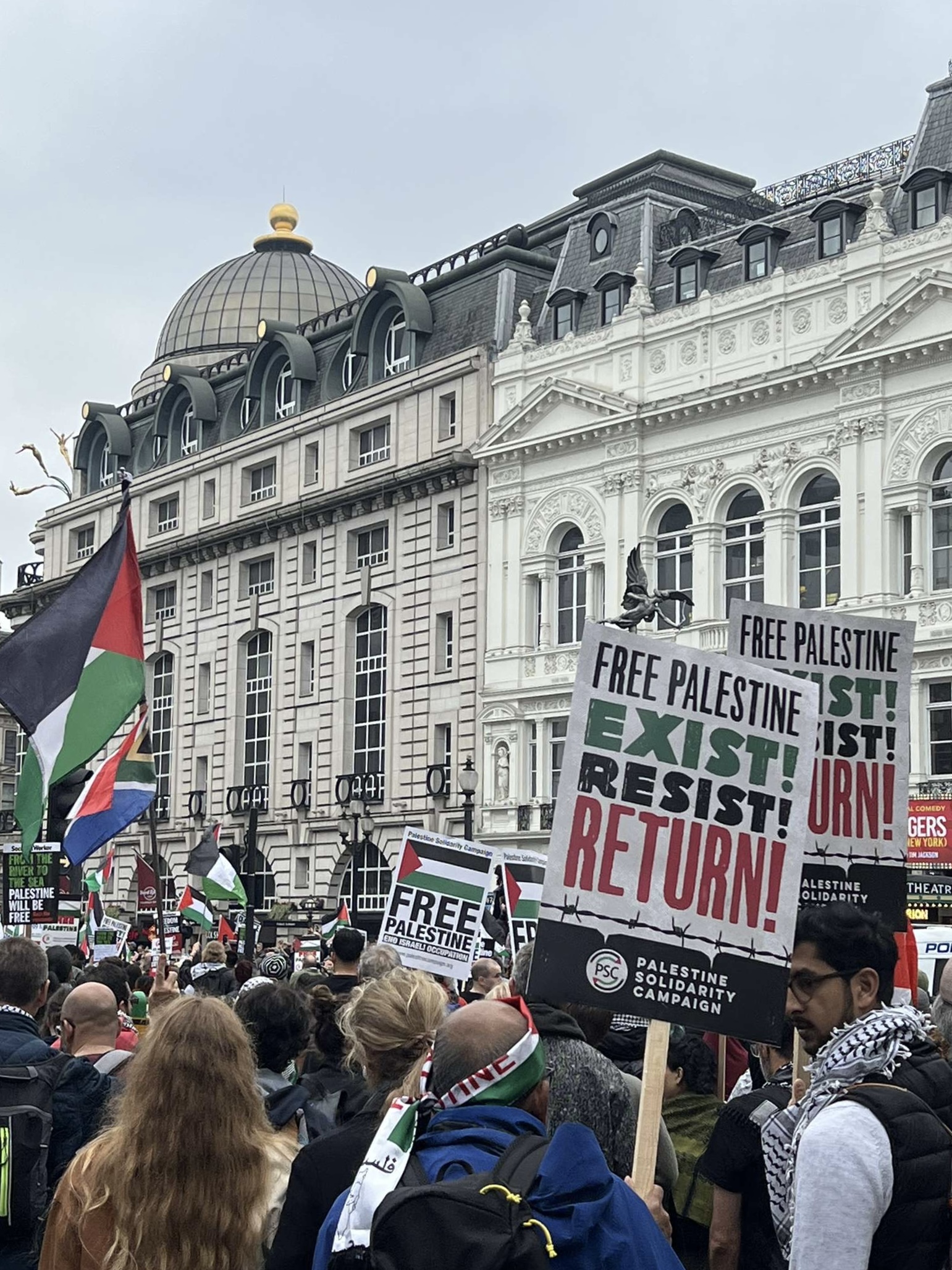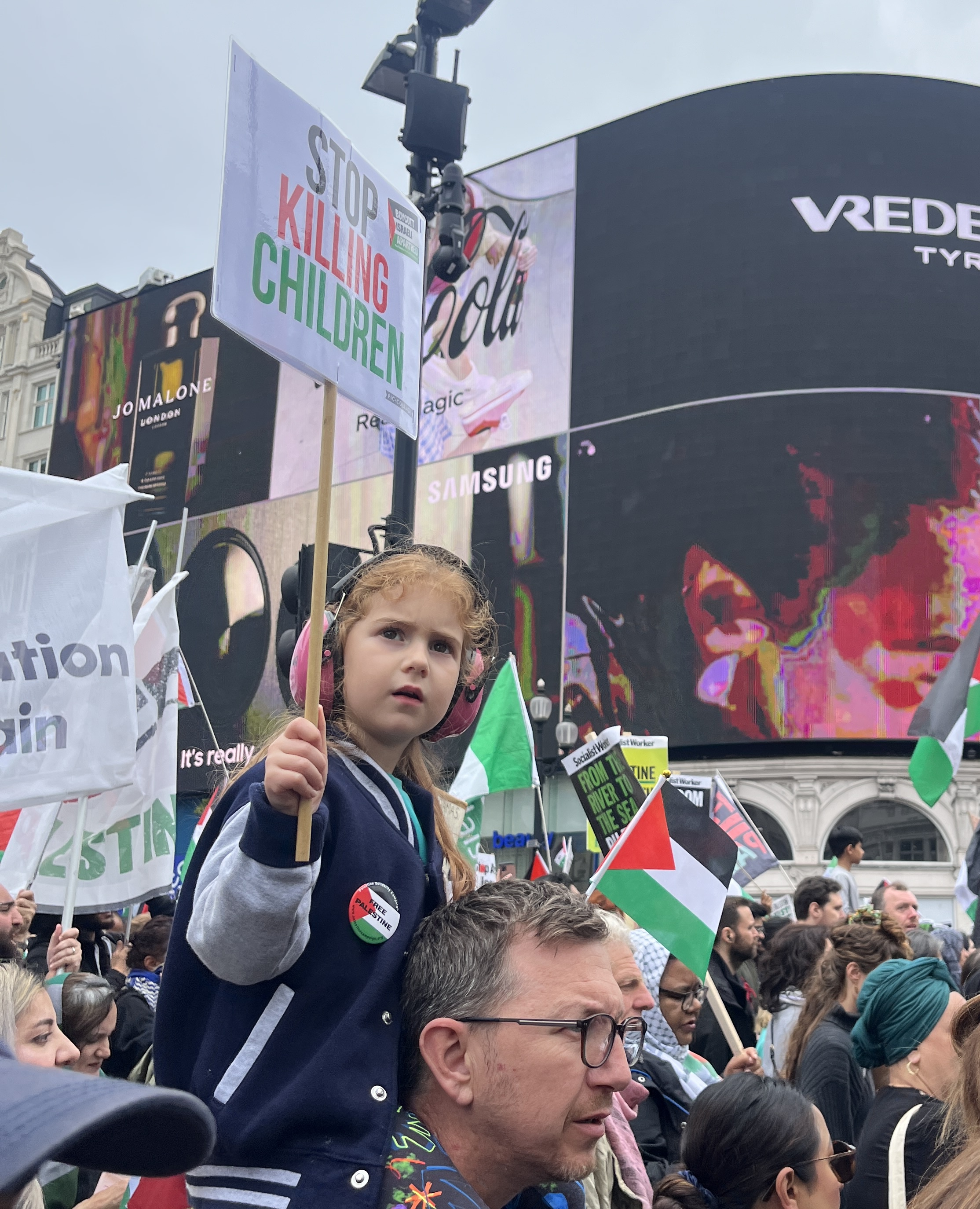WASHINGTON: The United States and Japan vowed Friday to stand firm together against an assertive China and to step up cooperation on climate change and next-generation technology as President Joe Biden made his first summit a show of alliance unity.
After waiting nearly three months for his first foreign guest due to the COVID-19 pandemic, Biden told Prime Minister Yoshihide Suga that Japan enjoyed the United States’ “iron-clad support” on security issues and beyond.
“We’re going to work together to prove that democracies can still compete and win in the 21st century,” Biden, affectionately calling the Japanese leader “Yoshi,” told a socially distanced news conference in the White House Rose Garden.
A joint statement called for “candid conversations” with China and did not hold back, raising concerns over Beijing’s growing maritime moves, its clampdowns in Hong Kong and Xinjiang and growing tension over Taiwan.
The statement reiterated that the US-Japan Security Treaty covers the Japanese-administered Senkaku islands – one of several areas in the region where Beijing, which calls them the Diaoyu, has increasingly shown its might.
The United States and Japan “recognize the importance of deterrence to maintain peace and stability in the region,” the statement said.
“We oppose any unilateral attempts to change the status quo in the East China Sea,” read one line highlighted by Suga.
The Chinese embassy in the United States hit back on Saturday, expressing “strong concern and firm opposition” to the comments.
“It cannot be more ironic that such an attempt at stoking division and building blocs against other countries is put under the banner of ‘free and open,’” a statement by the embassy said, referring to a US pledge to build a “free and open” Indo-Pacific region.
The matters raised “bear on China’s fundamental interests and allow no interference,” it added.
Biden and Suga also emphasized “the importance of peace and stability across the Taiwan Strait” and encouraged “the peaceful resolution of cross-Strait issues,” as Beijing steps up air incursions in Taiwan.
While cautiously worded, it was the first time a Japanese leader has joined a US president in a statement on Taiwan since the allies separately switched recognition from Taipei to Beijing in the 1970s.
Taiwan is an especially sensitive issue for Beijing, which claims the self-governing democracy.
The forthright statement comes despite Japan’s efforts in recent years not to antagonize China, its top trading partner, including by not joining Western nations in sanctions over human rights.
Suga echoed Biden’s themes as he described the US-Japan alliance as the “foundation of peace and stability” in the region.
“Freedom, democracy, human rights and the rule of law are the universal values that link our alliance,” Suga said.
In a highly unusual comment by a Japanese leader on the US domestic scene, Suga also voiced concern over a wave of attacks in the United States against people of Asian descent.
Biden’s second in-person summit will take place next month with South Korean President Moon Jae-in, part of the new administration’s strategy of shoring up alliances as it zeroes in on China as America’s most pressing challenge.
On another of his key priorities, Biden said he and Suga agreed on the need for “ambitious” climate commitments and indicated that both nations would soon announce goals by 2030.
Biden will lead a virtual summit next week in hopes of rallying climate pledges amid growing evidence of a planetary crisis as average temperatures hit record highs and natural disasters become more frequent.
Japan, the world’s third-largest economy, promised under the Paris accord to reduce emissions by 26 percent by 2030 but from 2013 levels – a goal that experts say is not bold enough to meet Suga’s goal of a carbon-neutral Japan in 2050.
“We confirmed that Japan and the US will lead global decarbonization,” Suga said.
Biden and Suga said they would step up joint development and testing of fifth-generation Internet – as well as the sixth-generation technologies of the future.
The United States and Japan must “maintain and sharpen our competitive edge” and ensure that “those technologies are governed by shared democratic norms that we both share – norms set by democracies, not by autocracies,” Biden said.
China’s Huawei has taken an early dominant role in 5G, which is becoming a crucial part of the global economy, despite heavy US pressure on the company, which Washington argues poses threats to security and privacy.
A joint statement said the United States had committed $2.5 billion and Japan another $2 billion.
Masashi Adachi, a special adviser to Suga, told reporters that the agreement was more about joint development than fresh funding, pointing to several projects underway in Japan on 5G development.
Suga in September succeeded Shinzo Abe, Japan’s longest-serving prime minister, who was one of the few democratic allies to manage to preserve stable relations with Biden’s volatile predecessor Donald Trump.
Biden and Suga also recommitted to the denuclearization of North Korea and discussed next moves following Trump’s unusually personal diplomacy with the totalitarian state.
US, Japan show united front on China in Biden’s first summit
https://arab.news/m8xhj
US, Japan show united front on China in Biden’s first summit

- ‘We’re going to work together to prove that democracies can still compete and win in the 21st century’
1m march in London to mark 76 years of Nakba

- 2-km march led by Palestinian photojournalist Motaz Azaiza
LONDON: About 1 million people peacefully marched in London on Saturday to commemorate the 76th anniversary of the Nakba (Catastrophe), which saw the expulsion of nearly 800,000 Palestinians from their homeland when Israel was established in 1948.
Regular Saturday marches in London since the Gaza war began last October have drawn hundreds of thousands of participants.

Crowds gathered at the BBC headquarters for a 2-km march led by Palestinian photojournalist Motaz Azaiza and a group of young British Palestinians carrying large lock keys, which symbolize their inalienable right to return to their homes under international law.
Azaiza’s Instagram following has surged to over 18 million as he documented the daily realities of Israel’s invasion and relentless bombardment of Gaza.
Since January, the 24-year-old has been traveling worldwide to advocate for a ceasefire and an end to the Israeli occupation.
“I didn’t believe that I’d stay alive to stand today here in London in front of the people. You saw me there under the bombing,” he told the crowd.
“You made me hope that there was hope. I didn’t believe in anyone, but … today, the moment I saw you all I thought there’s hope. The hope is in the people, not in the governments.”
Several pro-Palestinian organizations across the UK organized the march, calling on the British government to halt arms exports to Israel and restore funding to the UN Relief and Works Agency for Palestine Refugees in the Near East.
“Today, we reflect on the reality that this Nakba couldn’t be sustained by Israel without the enduring complicity of Western powers, including successive UK governments,” said Ben Jamal, director of the Palestine Solidarity Campaign.
“Today, even in this darkest moment, we also march to celebrate and affirm the refusal of the Palestinian people to succumb to erasure. We won’t stop, we won’t rest, until the Palestinian people finally achieve their liberation.”

The rally was met with a much smaller counter-protest carrying Israeli flags. There were only eight arrests reported by the London Metropolitan Police.
Parts of northern India scorched by extreme heat with New Delhi on high alert

NEW DELHI: Parts of northwest India sweltered under scorching temperatures on Saturday, with the capital New Delhi under a severe weather alert as extreme temperatures strike parts of the country.
India’s weather department expects heat wave conditions to persist across the north for the next few days, and has put several states on high alert. On Friday, parts of New Delhi reported up to 47.1 degrees Celsius. The nearby states of Punjab, Haryana and Rajasthan also saw temperatures soar and are likely to stay high over the next few days, said Soma Sen Roy, a scientist at the India Meteorological Department.
Roy cautioned people against going outdoors under the afternoon sun, drink lots of water and wear loose-fitting clothes while those who are especially vulnerable like the elderly should stay indoors.
The extreme temperatures in northern India coincide with a six-week-long general election, with experts worried that the heat wave could increase health risks as people wait in long lines to cast their vote or candidates campaign aggressively in the outdoors. One minister fainted due to heat last month while addressing an election rally in Maharashtra state.
Satish Kumar, a 57-year-old rickshaw driver in the capital, said his work was suffering because of the heat. “People are not coming outside, (markets) are nearly empty,” he said.
Pravin Kamath, a 28-year-old who runs a cart selling cold drinks, complained that it was so hot he could hardly stand being outdoors. “But I must work. What can I do? I am poor so I have to do it.”
The main summer months — April, May and June — are always hot in most parts of India before monsoon rains bring cooler temperatures. But the heat has become more intense in the past decade and is usually accompanied by severe water shortages, with tens of millions of India’s 1.4 billion people lacking running water.
A study by World Weather Attribution, an academic group that examines the source of extreme heat, found that a searing heat wave in April that struck parts of Asia was made at least 45 times more likely in some parts of the continent by climate change.
Asian activists call out Western feminists over ‘selective empathy’ on Gaza

- Non-Western feminists say white supremacy, imperialism are inherent to Western feminism
- Seven months into Israel’s deadly war on Gaza, feminists in the West have been largely silent
JAKARTA: When Western actresses and female politicians cut their hair to protest the death of Mahsa Amini or rallied against the Taliban ban on girls’ education, they stood up to defend women’s rights. However, the zeal went missing when it came to Palestine, non-Western feminists say, denouncing their peers’ silence on Israel’s killing of women in Gaza.
Mass protests and displays of solidarity in Europe and the US broke out in 2022 and carried on into 2023 following the death in Iranian police custody of the 22-year-old Amini, who was charged with breaching hijab rules. In the same years, when the Taliban barred Afghan girls from school, women united in outcry and called for international pressure against them.
But more than seven months into Israel’s indiscriminate killing, wounding, and maiming of Palestinian civilians, the West’s mainstream feminist movement has been largely silent.
At least 35,800 people in Gaza have been killed and 80,000 wounded by Israeli airstrikes and ground offensive that have destroyed most of the enclave’s infrastructure and rendered it uninhabitable.
The majority of the dead are women and children. Many have lost their lives as most of the hospitals have been flattened by Israeli troops and no medical assistance could reach them.
The International Rescue Committee estimated last month that 37 mothers had been killed in Gaza each day and 60,000 pregnant women had no access to midwives or doctors, while tens of thousands struggled with breastfeeding as they were so malnourished due to Israel’s blockade of humanitarian aid.
In the face of the widely documented atrocities, Haein Shim, Korean activist and spokesperson of Haeil, a Seoul-based feminist group, told Arab News that Western feminists were exhibiting “selective empathy” and “double standards” with regard to Israel’s onslaught, the criticism of which has regularly been labeled as “antisemitism” — not only by Israeli authorities but by Western leaders as well.
“I strongly believe these issues are interconnected with racism, imperialism, and colonialism,” Shim said.
“We need to urge each other to break the silence and unite against occupation and subjugation, Israel’s human rights abuses and ongoing genocide. One thing to be clear: Our solidarity does not mean antisemitism but only to end the vicious genocide and violence against women and children.”
While Shim believes it is not too late for “global feminist solidarity” with women in Gaza, Fadiah Nadwa Fikri, Malaysian human rights lawyer and scholar focused on decolonization, sees an intrinsic flaw in Western feminism, which might prevent it.
“The function of Western feminism, which is inherently imperialist, is to reduce and dehumanize not only Palestinian women and children but also Palestinian men, who have been subjected to decades of Israeli settler colonialism, with the full support of US imperialism and its allies in Europe,” she said.
“It is, therefore, not surprising to witness the deafening silence of most Western feminists, who are staunch advocates of this strand of feminism, in the face of relentless imperialist violence in Gaza and all of historical Palestine. Their silence is an endorsement of the status quo.”
For Fikri, Western feminism has been shaped by “the racist narrative of the clash of civilizations,” and its silence on Gaza was merely consequential.
“We see women like Madeline Albright, Condoleezza Rice, Hilary Clinton, Kamala Harris — both white and non-white — who depict themselves as champions of women’s rights become members of the ruling classes of imperialist states that are responsible for the mass death, destruction, and suffering around the world,” she said.
“Therefore, there are no double standards of Western feminism; there is only one political standard meant to protect the interests of the imperialist ruling classes, which has been applied consistently.”
In the context of Israel and accusations of antisemitism fired against its critics, Asian feminists also cited the problem of white supremacy, which they closely linked with Zionism.
“Zionist ideologies are not just harming and discriminating against Palestinians, and the destruction of Palestine is not merely about Palestine. Zionism is about white supremacy and colonization, and the destruction of Palestine is just another example of imperialist violence inflicted by Western colonizers, aka white people,” said V., member of Chinese Feminism in Toronto, a Canada-based grassroots collective, who requested to remain anonymous.
“If we consider the sociopolitical context of North America, we know most Jews are also white people, yet we do not have the space to discuss the complexity of antisemitism and white supremacy simultaneously. I guess that speaks a lot (as to) why white feminists tend to be hypocritical here.”
Her colleague, G., also a member of the group, said that hypocrisy was also present among non-white women leaders who were “internalizing whiteness” and embracing Zionism.
“We need to understand this should not be done in our names. We need to have firm voices and expose these leaders as Zionist agents and complicit in genocide, instead of accepting the fact that our elected leaders turn complicit and no longer represent us. We need to hold them accountable,” she said.
“Decolonization is not just theory. We all need to move beyond the bystander observer position and let Palestine radicalize us. We need to continue to educate ourselves and our communities on colonial feminism/pinkwashing and purplewashing.”
Part of the struggle is debunking pro-Israel propaganda and fighting “against the utilization of antisemitism to shut down any criticism against Israeli or Zionist policies,” according to Okky Madasari, Indonesian novelist and academic, whose research focuses on knowledge production and censorship.
“There must be a unified campaign to stop believing anything coming out from the Israeli authorities. They are liars unless they are proven otherwise,” she told Arab News.
For those activists who for the past seven months have been silent over Gaza, Okky suggested that they stop using the feminism label altogether.
“You should be ashamed of yourself if you don’t speak up against Israel when you are so fussy about many other more trivial things,” she said.
“Condemning Israel and taking sides with the Palestinians is what any decent human being must do, let alone if you are a feminist.”
Parts of northern India scorched by extreme heat with New Delhi on high alert

- India’s weather department expects heat wave conditions to persist across north for next few days
- On Friday, parts of New Delhi reported up to 47.1°C, with temperatures also soaring in nearby states
NEW DELHI: Parts of northwest India sweltered under scorching temperatures on Saturday, with the capital New Delhi under a severe weather alert as extreme temperatures strike parts of the country.
India’s weather department expects heat wave conditions to persist across the north for the next few days, and has put several states on high alert.
On Friday, parts of New Delhi reported up to 47.1 degrees Celsius (116 degrees Fahrenheit). The nearby states of Punjab, Haryana and Rajasthan also saw temperatures soar and are likely to stay high over the next few days, said Soma Sen Roy, a scientist at the India Meteorological Department.
Roy cautioned people against going outdoors under the afternoon sun, drink lots of water and wear loose-fitting clothes while those who are especially vulnerable like the elderly should stay indoors.
The extreme temperatures in northern India coincide with a 6-week-long general election, with experts worried that the heat wave could increase health risks as people wait in long lines to cast their vote or candidates campaign aggressively in the outdoors. One minister fainted due to heat last month while addressing an election rally in Maharashtra state.
Prime Minister Narendra Modi as well as his main challenger, Rahul Gandhi of the opposition Congress Party, are expected to hold rallies in New Delhi later on Saturday, as the city heads to the polls on May 25.
Satish Kumar, a 57-year-old rickshaw driver in the capital, said his work was suffering because of the heat. “People are not coming outside, (markets) are nearly empty,” he said.
Pravin Kamath, a 28-year-old who runs a cart selling cold drinks, complained that it was so hot he could hardly stand being outdoors. “But I must work. What can I do? I am poor so I have to do it.”
The main summer months — April, May and June — are always hot in most parts of India before monsoon rains bring cooler temperatures. But the heat has become more intense in the past decade and is usually accompanied by severe water shortages, with tens of millions of India’s 1.4 billion people lacking running water.
A study by World Weather Attribution, an academic group that examines the source of extreme heat, found that a searing heat wave in April that struck parts of Asia was made at least 45 times more likely in some parts of the continent by climate change.
Climate experts say extreme heat in South Asia during the pre-monsoon season is becoming more frequent and the study found that extreme temperatures are now about 0.85 C (1.5 F) hotter in the region because of climate change.
At least 28 heat-related deaths were reported in Bangladesh, as well as five in India in April. Surges in heat deaths have also been reported in Thailand and the Philippines this year, according to the study.
Extreme heat is fast becoming a public health crisis in India, with more than 150 people dying last year during heat waves. The government estimates nearly 11,000 people have died during heat waves this century, yet experts say such figures are likely a vast undercount.
Slovak PM Fico stable but in serious condition

- Robert Fico underwent a two-hour operation on Friday that increased hopes for his recovery
- Slovak police have charged a man identified by prosecutors as Juraj C. with attempted murder
BANSKA BYSTRICA, Slovakia: The condition of Slovak Prime Minister Robert Fico has stabilized but remains serious, the country’s health minister said on Saturday, following Wednesday’s assassination attempt against the central European leader.
Slovakia’s deputy prime minister also said the transfer of Fico to the capital Bratislava from the small-town hospital near the area where he was shot five times at point blank range would not take place in the coming days.
There was no need to formally take over Fico’s official duties and some communication with the premier was taking place, Deputy Prime Minister Robert Kalinak told reporters in front of the hospital where Fico was being treated.
Fico underwent a two-hour operation on Friday that increased hopes for his recovery. The attack sent shockwaves throughout Europe and raised concerns over the polarized and febrile political situation in the nation of 5.4 million people.
Slovak police have charged a man identified by prosecutors as Juraj C. with attempted murder. Local news media say he is a 71-year-old former security guard at a shopping mall and the author of three collections of poetry.

















